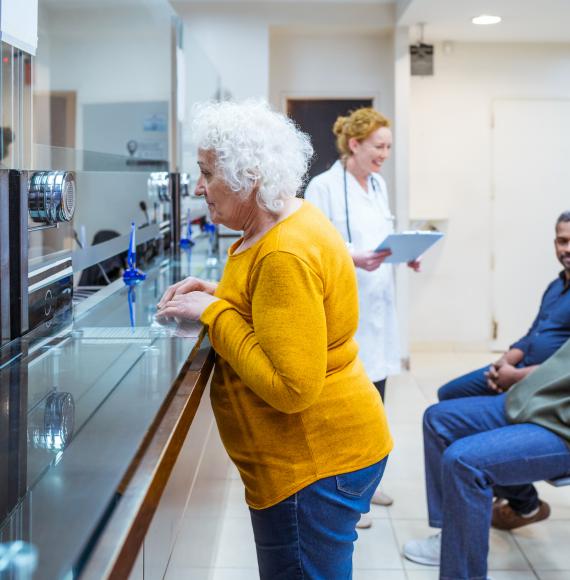To say that the Covid-19 pandemic has changed the health service is an understatement. The crisis has precipitated transformation at a scale and pace never before seen, taking many working within the health and care sector by surprise. Catalyzed by common purpose and an urgency to make decisions, the explosion of innovation has been led by frontline staff and empowered by a changed leadership culture and eased regulatory framework.
From GP surgeries to outpatient clinics, intensive care to virtual consultations, there has been one change after another and widespread adoption of new technology.
For some, digital innovation has become the byword for the health and care response to Covid-19. Services pivoted quickly to adopt digital approaches to service provision, with the expansion of virtual consultations in primary and outpatient care, and more innovative sharing of data between services. More than 70% of GP consultations in England were carried out face-to-face prior to the coronavirus outbreak but within weeks that figure had dropped to 23%, according to a recent report from the Royal College of GPs (RCGP).
Our engagement with health and care leaders and clinical teams found one key message to be clear: we must build on the progress of this period to chart a new course.
Before the pandemic, the spread of innovation in the NHS had often been a challenge, with beneficial changes in practice often concentrated within one organisation, or even within one department. Others were often unaware of progress and prone to reinventing the wheel. The time lag between local success and system-wide transformation has also often been too long, with the complexity of achieving the same results in the varied contexts of different places underestimated.
Yet in a matter of weeks, Covid-19 has shown that rapid change is possible. The crisis response has unblocked many of the barriers that had hitherto been in place. This has allowed services to evolve at an astonishing pace, creating a new context for innovation. Necessity, in this case, really has been the mother of invention.
But what has been so special about this period that has enabled such an acceleration of innovation and associated policy which have previously only made incremental progress?
To explore this question, we teamed up with the AHSN Network and Health Foundation as part of our NHS Reset campaign. Over summer and autumn 2020, we held a series of engagement events with health and care leaders, clinicians, industry partners and academics to delve into the learning, enabling factors and key considerations as the health sector moves forward. This learning is distilled in a new long read and will be explored further at the NHS reset conference on 24 November.
While the scale of innovation and change has generated much enthusiasm, not all change will be right for the long term. Evaluation will be critical to assess what has worked and for whom, and the NHS must continue to reach informed decisions about which innovations offer best value to patients and taxpayers.
However, as we start to emerge from a second wave, it will be imperative to maintain the openness to innovation and to understand and boost the conditions that enabled it. Local leaders are keen to understand how they can nurture this culture of innovation, and national leaders for regulation and oversight must also pause to rethink how their interactions with the service could also support rapid change.
The key question for winter and 2021 will be how much further the NHS can go in terms of radical innovation and service shifts to meet all the built-up unmet need. This is crucial, with elective care and diagnostic backlogs set to reach 10 million by the end of the year, the NHS needs desperately to streamline service offerings where it can, while not sacrificing the quality of care.
These additional demands on NHS capacity follow years of underinvestment in our health system, at a time of almost 90,000 vacancies within the NHS, increased staff absence due to sickness and isolation; workforce exhaustion due to the physical and psychosocial demands of Covid-19; and reduced estate capacity due to Covid-19 infection control protocols.
These are significant challenges to surmount. But what the pandemic has shown us is that the service can adapt rapidly and effectively when it needs to.
Rapid innovation and learning have been at the heart of our immediate response to Covid-19; it must remain at the heart of what we do as we transition to managing its medium and long-term consequences.



















